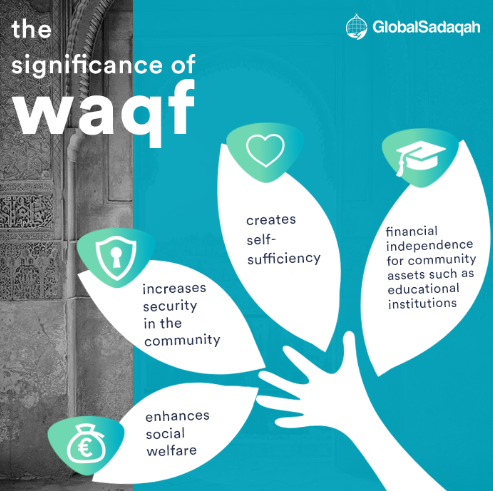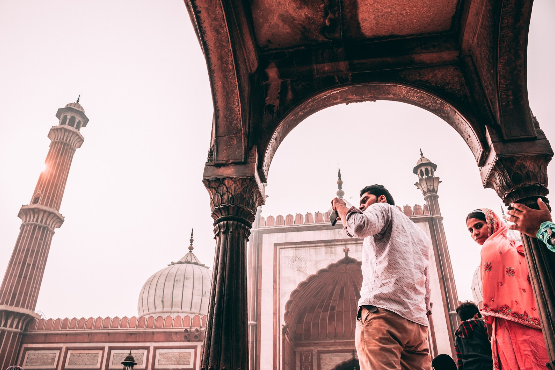The term waqf literally means to prevent (habs) or restraint. In legal terms, it means to protect a thing or to prevent it from becoming the property of a third person.
In definition, waqf refers to the endowment of an asset or property by a Muslim to the ownership of Allah for religious, charitable, and pious purposes. It could be defined as the Muslims’ permanent dedication for religious purposes including a declaration of dedicating its usufruct perpetually as recognised by the Shariah.
Waqf is inalienable or made in perpetuity. Once the dedication is made, all rights of the property are passed from the waqif and rest with Allah in an absolute sense. Hence, the asset that has been made as the subject of waqf cannot be sold, mortgaged, donated or otherwise transferred even by inheritance.
The owner surrenders his power of disposal over the specific asset with the stipulation that its benefit or income is to be used for permitted good purposes including charitable, religious, family or pious purposes.
Besides that, only the benefit or income produced by the waqf asset or property endowed may be consumed while the Waqf asset itself cannot be consumed.
Interestingly, Muslims can also a submit self-dedicated Waqf (al-Waqf ’Ala al-Nafs) whereby a Waqf is created with a condition that the donor retains the income/usufruct of the Waqf property for himself as long as he is alive, and it is channelled to the charitable purposes after the death of the waqif.
The Significance of Waqf

The concept of waqf has huge significance as it brings the waqif continuous reward (Hasanah). When well managed, it can significantly enhance social welfare, increases security in the community, creates self-sufficiency and financial independence for community assets such as educational institutes.
Allah has given us the facilities of waqf and zakat, and yet how much of it is actually effective? How much zakat money actually reaches the intended people? How much waqf assets are actually serving its true purpose?
Is it indeed tragic that in this modern world, there are still thousands of people who are forced to sell their bodies just to have food on the table. It is sad to see many mosques having to depend on donations from personalities and donation boxes. With waqf, it removes this dependency and restores honour to the mosques.
In fact, the first religious waqf in Islam was the mosque of Quba’ in Madinah which was built when Prophet Muhammad ﷺ arrived and six months later, Quba’ was followed by the establishment of the Mosque of the Prophet. Mosques and real estates that fall under the religious waqf are confined to providing revenues to spend on mosques’ maintenance and operating expenses.
Proof 1
Narrated Ibn Umar: Umar bin Khattab got some land in Khaibar and he went to the Prophet ﷺ to consult him about it saying, “O Allah’s Messenger ﷺ I got some land in Khaibar better than which I have never had, what do you suggest that I do with it?” The Prophet ﷺ said:
إِنْ شِئْتَ حَبَسْتَ أَصْلَهَا، وَتَصَدَّقْتَ بِهَا
“If you like you can give the land as endowment and give its fruits in charity.”
So, Umar gave it in charity as an endowment on the condition that would not be sold nor given to anybody as a present and not to be inherited, but its yield would be given in charity to the poor people, to the Kith and kin, for freeing slaves, for Allah’s Cause, to the travellers and guests; and that there would be no harm if the guardian of the endowment ate from it according to his need with good intention, and fed others without storing it for the future.” [Bukhari]
Proof 2
Abu Huraira reported: The Messenger of Allah ﷺ said,
إِذَا مَاتَ الْإِنْسَانُ انْقَطَعَ عَنْهُ عَمَلُهُ إِلَّا مِنْ ثَلَاثَةٍ إِلَّا مِنْ صَدَقَةٍ جَارِيَةٍ أَوْ عِلْمٍ يُنْتَفَعُ بِهِ أَوْ وَلَدٍ صَالِحٍ يَدْعُو لَهُ
“When the human being dies, his deeds come to an end except for three: ongoing charity, beneficial knowledge or a righteous child who prays for him.” [Muslim]
You’ll never get a gift on the Day of Judgement and say “La Shukran”; no thanks I’m good. You’ll want to get anything and everything you can get your hands on. Waqf gives you this opportunity.
The first two are easily understandable, but how is a virtuous child a continuous good deed? The best effort to get rewarded for is your own, and your child is indeed your own effort.
There is no such thing as small knowledge. Knowledge is from Allah and nothing from Allah is small. Even if it is something like tying your shoelaces. When Allah mentions virtues of knowledge, it refers to the knowledge that brings us closer to Him, either the knowledge of Islam or the universe in general.
However, even if it is worldly knowledge, if your intention is right and people benefit from you, then your learning, teaching and applying it counts your efforts to achieve Allah’s blessings and redha.
The Purpose of Waqf
A Waqf should be created for charitable purposes recognised by the Shariah. Examples of charitable purposes are extensive. It may include waqf for mosques, schools, hospitals, universities as well as the public utility or public interest including the general welfare of the poor. Besides that, man’s duty to his family is also a valid purpose recognised by Islam.
Moreover, a waqf can be created as the support of the founder’s own immediate descendants in perpetuity for as long as the family members are alive, after which the waqf would go to the poor.
Besides that, it is permissible to make waqf for the benefit of non-Muslims, provided that the cause to be served does not involve a sin. A waqf is a form of sadaqah and cannot be made for impermissible purposes. A waqf that is not in line with permissible conditions or it violates the Shari’ah rulings, the conditions become null and void while the waqf shall remain valid.
Furthermore, if the purpose of the waqf is religious and charitable but this purpose is not realised or has ceased to exist, the waqf will still be valid. The perpetuity principle continues as there is an implied term in the waqf to benefit the poor in the event the original purpose of the waqf is not realised.
In this case, the income of such a waqf property can be utilised provided it is used:
- with the consent of the court or religious authority;
- for the upkeep or renovation of any waqf asset;
- for purposes similar to the original purpose;
- for the benefit of the poor in general; and
- for the purpose of promotion of beneficial knowledge.
For example, when a waqf is meant for a religious or charitable institution which in the course of time ceases to exist, the ownership of the waqf property will not return to the waqif or his descendants. Instead, the waqf asset will be used to bring benefit to similar religious institutions or other causes which may benefit the community.
Moreover, waqf has a redistributive function as the purpose of waqf is to help the poor or the intended beneficiaries. Waqf resources are channeled to them and bring benefit to them.
In addition to this, waqf also plays an important role in protecting the wealth of Muslim nations by prohibiting the sale or loss of community and religious assets. Consequently, waqf assets remain in the hands of Muslims over long periods of time. In fact, waqf also protects assets from being wasted by prodigal children who may squander the wealth left to them by their parents.
To be continued…Read Part 2 here

